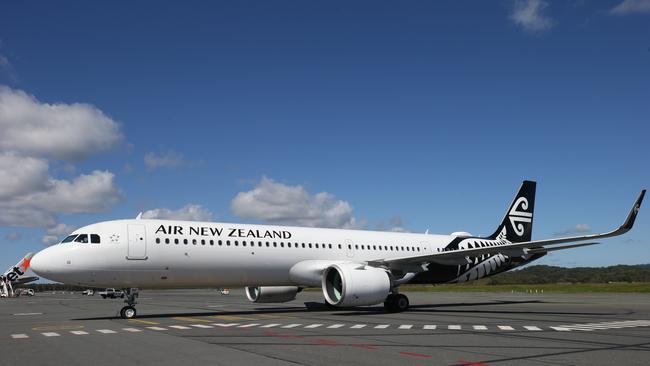Air New Zealand aims for zero-carbon plane in fleet by 2030
Air New Zealand expects to trial a zero-carbon aircraft in its fleet by 2030 and is exploring green hydrogen and electric options.

Air New Zealand should be trialing a zero-carbon aircraft in its fleet by 2030 and is exploring green hydrogen and electric options, according to its executive overseeing safety and sustainability.
The carrier has been in discussions with a couple of aircraft manufacturers about zero-carbon development, David Morgan told a Centre for Aviation online conference.
The airline’s first use of a zero carbon aircraft could be for cargo rather than passengers and be a single-engine plane, he said. A viable 20-30 seat twin-engine plane that doesn’t run on jet fuel is about a decade away.
“We are of the view that we would like to see a zero carbon in our fleet sooner rather than later,” Mr Morgan said. “I would actually quite like to see by 2030 an electric aircraft operating, probably as a pilot, as a trial.”
The airline has a fleet of 96 planes in operation and 15 long-haul Boeing 777 planes in storage in the US because of the pandemic.
As governments ramp up efforts to meet targets for reductions in carbon emissions, transport industries and aviation in particular are likely to face increased pressure from regulators and their customers to decrease reliance on fossil fuels.
Domestic routes would be the initial focus for Air New Zealand’s use of zero-carbon aircraft.
The airline has 51 turbo prop planes that it uses on regional New Zealand routes and about half of them--Bombardier Q300 planes--have an average age of 14.5 years and will need to be replaced after 2030. Its ATR turbo props are an average of 4.5 years old.
“The aircraft that will replace them will be aircraft powered by some alternative power. So that’s our expectation,” Mr Morgan said. “That’s the challenge that we’ve put out to the industry.”
Dow Jones Newswires



To join the conversation, please log in. Don't have an account? Register
Join the conversation, you are commenting as Logout